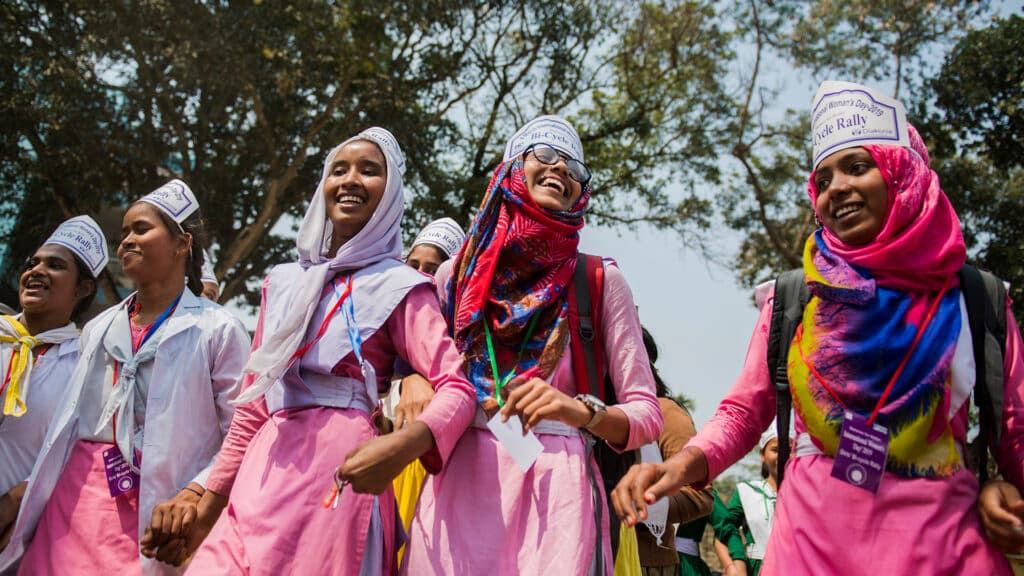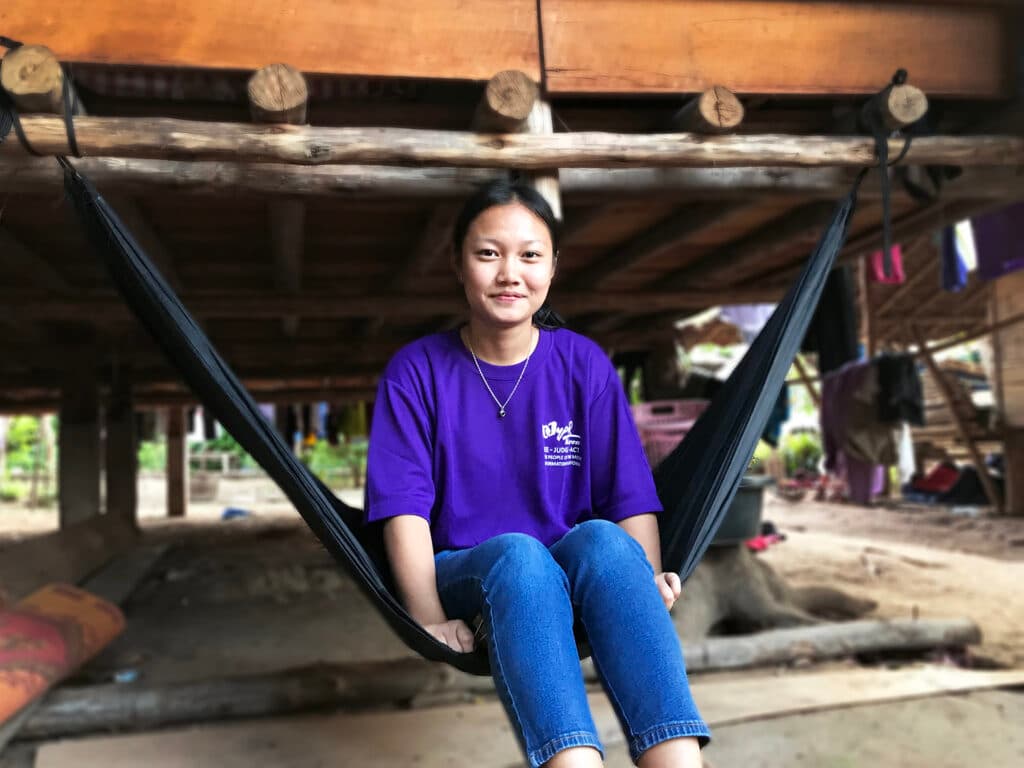
Bangladesh
Diakonia operates in partnership with NGOs in Bangladesh, increasing awareness and respect for human rights and gender equality, improving access to social and economic resources. The work is mostly carried out in the rural areas of the country.
Bangladesh, a South Asian country, is one of the largest deltas in the world. It is mostly bordered by India on three sides, with the Bay of Bengal to the south and a relatively smaller border with Myanmar on the southeastern side. Bangladesh is one of the most densely populated countries, with a population of 165.16 million (BBS-2022) and 1,350 people per square km. The country’s main sources of income are agriculture, the service sector and the textile industries.
Gender based violence – an obstacle to development
Bangladesh society is deeply rooted in patriarchy, with male domination in every sphere of life, leading to an unequal power distribution among sexes. Regressive stereotyped believes and values are impeding gender equality. They manifests in various forms, discriminatory laws, practices, violence against women and girls, both at home and in public, unequal property rights and unequal wages. They restrict women and girls economic, political, social and cultural opportunities.
While the constitution affirms gender equality, religion-based family laws on marriage, divorce and inheritance continue to discriminate against women. Although there is an increasing trend of women’s mobility and participation in formal institutions, men’s gender-based violence against women – such as rape, child marriage and dowry related abuse – remains widespread, posing challenges to the progress.
Women’s economic powerlessness often makes them more vulnerable and dependent on male members. Men are also subject to stereotypical expectations, including the belief in their supremacy over women. As a result, gender equality remains one of the major obstacles to sustainable social, economic and political development in Bangladesh.
Workers’ rights need to be promoted and protected
Bangladesh is still a predominantly rural country, but its urban population is rising rapidly with number of people living in slums lacking in wealth, power and social connections and basic services. They are often engaged in low pay, informal sectors and beyond the purview of law. As a consequence, they have limited rights and entitlements with respect to minimum wages, standard working hours, compensation, leave and other entitlements and benefits. The formal sector is more organized than the informal sector, however, it still faces challenges including long working hours and inadequate welfare issues.
Climate change and environmental challenges
Although Bangladesh is not a significant contributor in terms of emitting greenhouse gases, it has become a ‘victim’ of global climate change. Hazards are turning into disasters due to reduced resilience capacity. People are pushed to migrate both internally and externally; and often face exploitations. Those who stay, mostly women, bear a double burden as they must act as bread earners and caregivers. Community-based adaptation initiatives often lack women’s participation, and they are heavily male dominated. Limited access to fresh water due to increased salinity in southern parts is also a reality. Additionally, environmental pollution caused by growing industrialization is further worsening the situation.
Our work in Bangladesh
Diakonia and our partner organisations are working toward gender justice, human rights, and community resilience in disaster-prone areas. Feminist leadership, youth engagement, and climate advocacy are at the core of our programme, with gender equality, conflict sensitivity, and environmental protection integrated across all areas of work.
We aim to empower rights holders by raising awareness about the unequal structures that sustain poverty and injustice—and what can be done to change them. Through our partners, we promote gender equality, human rights, and disaster resilience, while strengthening communities and fostering people’s participation in socio-economic, cultural, and political governance processes. Our work is guided by a rights-based approach.
To promote gender justice, we work to prevent gender-based violence, including gender stereotyping and discriminatory laws and policies. These issues are tackled at home, in workplaces, and in public spaces through individual, social, and legal actions. Among young people, especially girls, we promote bicycling, self-defence training, and various sports including football.
In advancing human rights, we raise awareness about the rights and entitlements of workers, ethnic and religious minorities, and other marginalised communities in both rural and urban areas through mediation and litigations. Ensuring decent working conditions and advocating for workers’ rights – including employment benefits, compensation for workplace deaths and injuries and workplace safety standards – are key priorities.
Our work is carried out in collaboration with partner organisations at national and local levels, with a special focus on disadvantaged women and young people. We engage community leaders, civil society, local government, media, and government authorities to drive meaningful change.
Diakonia’s work makes a difference
By fostering grassroots initiatives, we have strengthened community-based actions, supporting groups such as gender development forums, social entrepreneur networks, adolescent groups, student volunteer initiatives, and village development committees. These groups monitor and respond to violence against women, raise awareness of human rights, and advocate for access to social services. Through this focus, we have seen successful cases of communities preventing child marriages and violence against women.
For more information
Khodeja Sultana, Program Manager Bangladesh
E-mail: khodeja.sultana@diakonia.se
Phone: +880 2 912 12 56

Protecting Labour Rights and Factory Safety in Bangladesh
Bangladesh’s economic growth mainly depends on labour-intensive, export-oriented industrialization. Although labour is the country’s strongest comparative advantage source, the workers’ conditions and safety are still major areas of concern. Diakonia and a partner in Bangladesh work to improve the situation.

Transforming endless poverty in Balurmath slum
Since 2021, Diakonia’s partner BARCIK has worked with 500 families in the Balurmath Slum in Dhaka. In addition to providing skill development training and agriculture knowledge, the organization also facilitates cultural activities with the youth living in the areas, and encourages the slum dwellers to claim their housing and other basic rights with the relevant policymakers.
Community disaster management saves lives
The Gender and Resilience project was created as a response to Diakonia’s ambition to strengthen its work on disaster risk reduction and to bridge the humanitarian and development work.
As a result of the project, women and youth developed community based disaster management plans with a special focus on the most vulnerable and marginalised people.

Karate creates a new role
“I wish for my students to grow up and do good in society,” says Gaetree Roy. “It’s my hope that they’ll work to stop child marriage, that they’ll defend others who are affected, that they’ll help children complete their education. I want to see ‘my’ girls do good for other people.”
Gaetree is a karate trainer and role model in Bangladesh.


